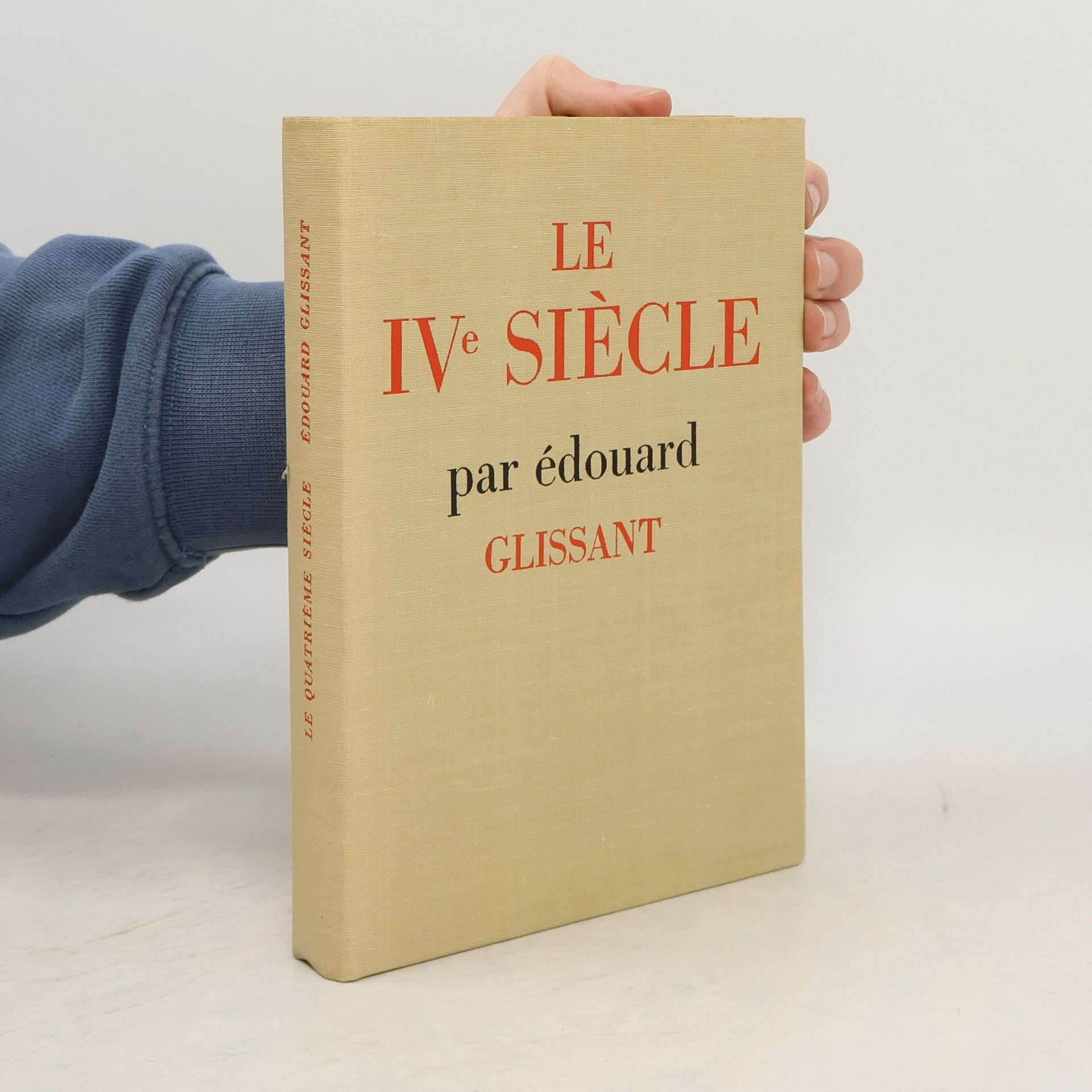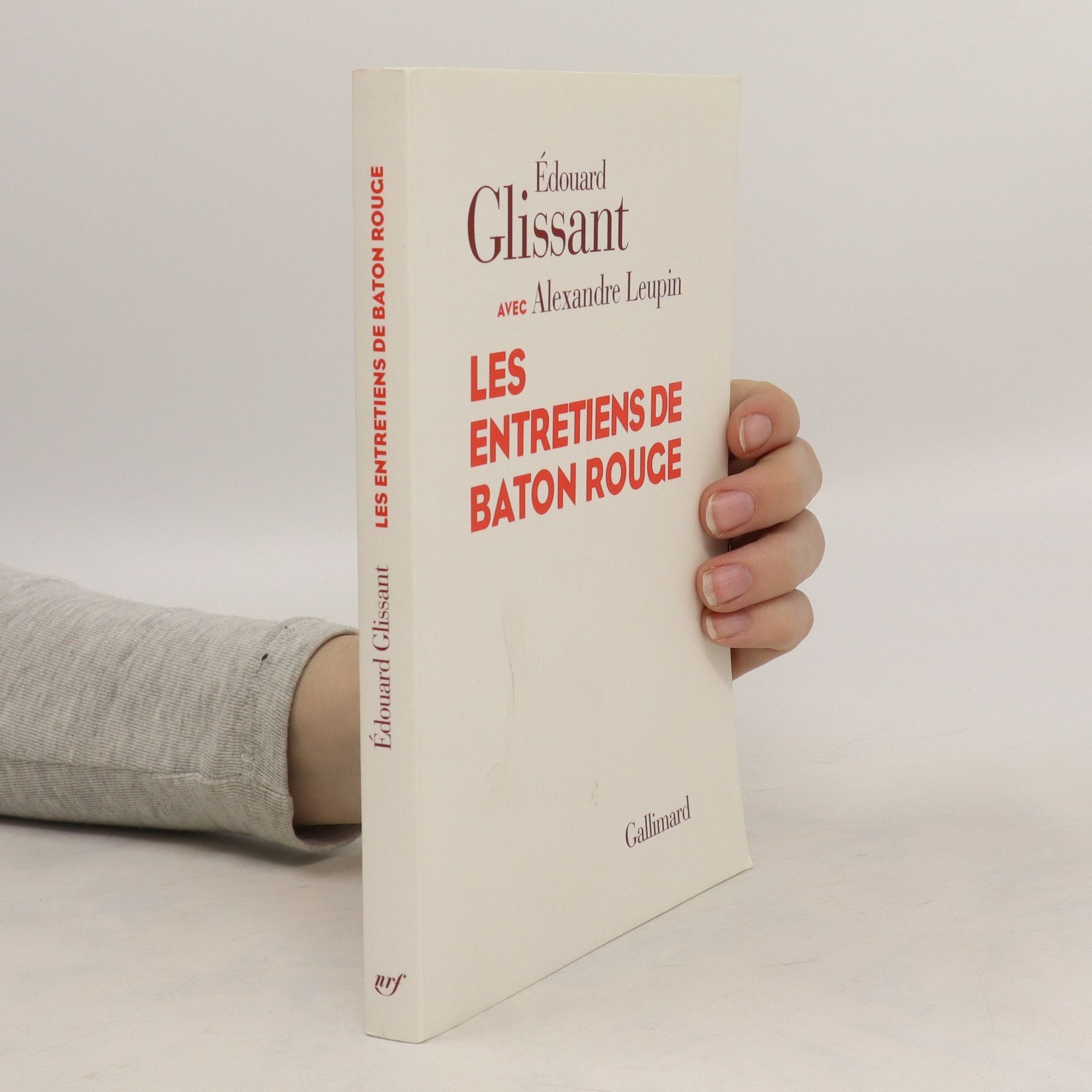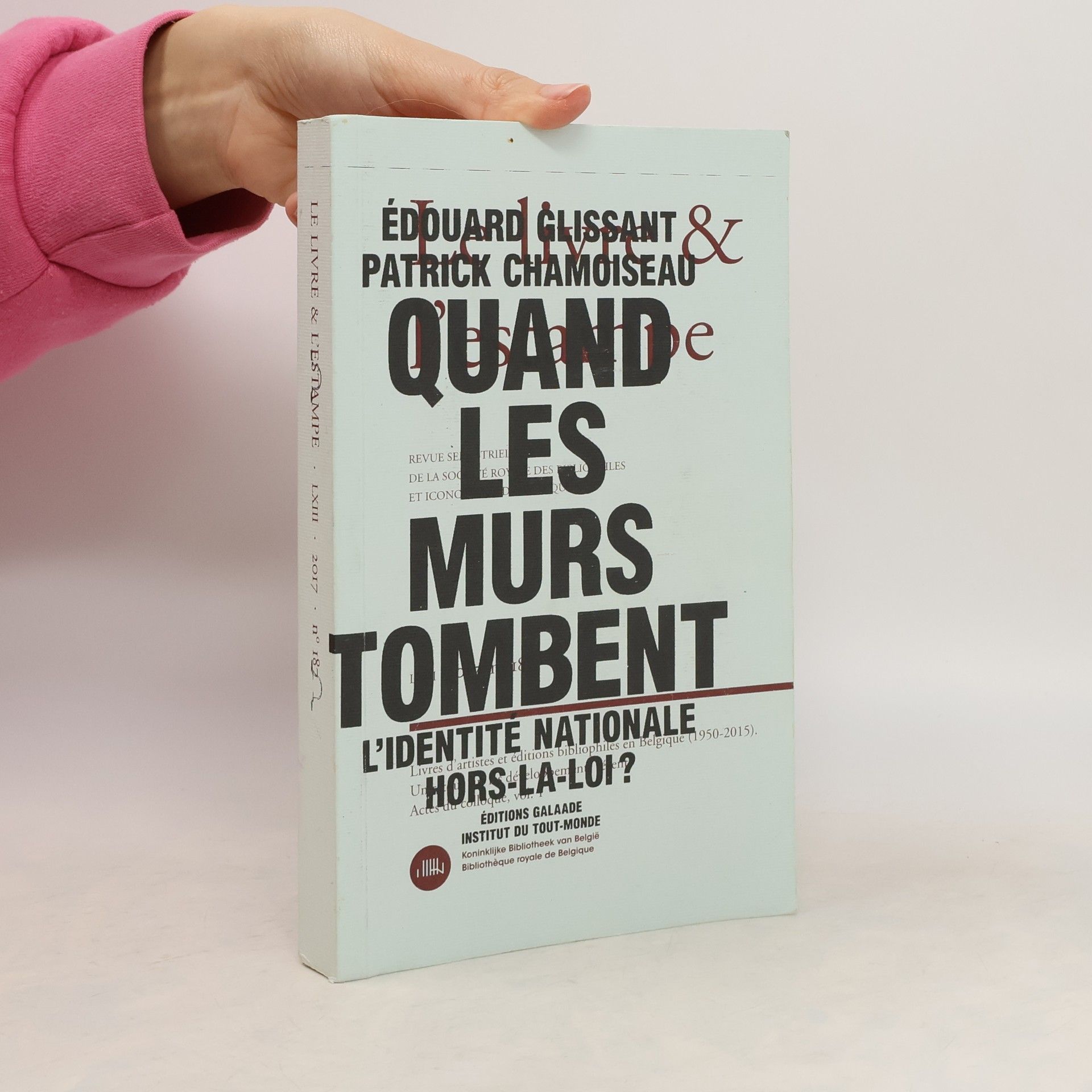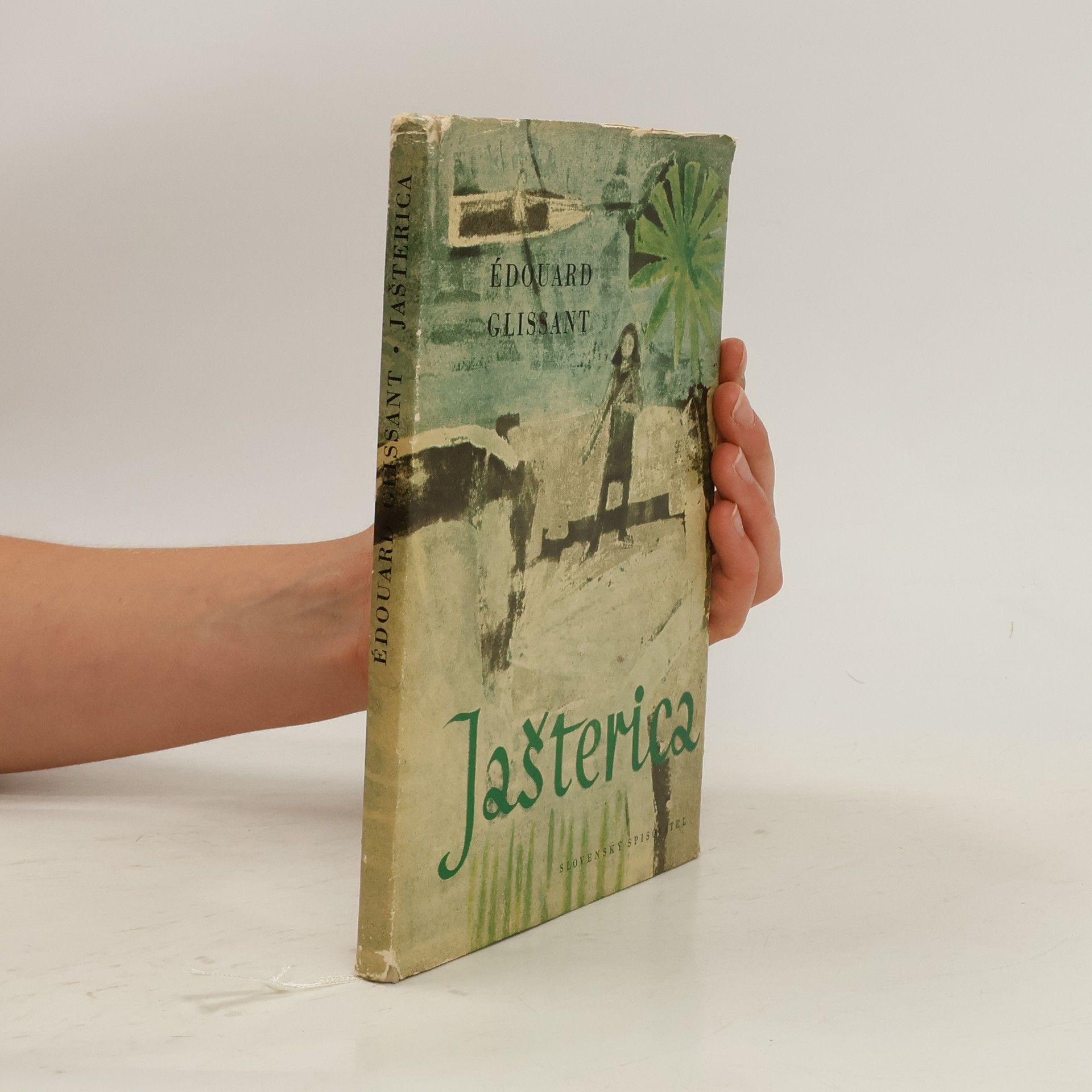E. douard Glissant Livres
Édouard Glissant était un écrivain, poète, philosophe et critique littéraire français originaire de Martinique, largement reconnu comme l'une des figures les plus influentes de la pensée et du commentaire culturel caribéens. Son œuvre explore les thèmes de l'identité, de l'histoire et de la culture dans le monde postcolonial. L'écriture de Glissant se caractérise par son exploration de la complexité et de la multiplicité, offrant des aperçus profonds sur l'expérience humaine et l'interconnexion des cultures. Il a façonné le discours contemporain sur la créolisation et la compréhension plus large de l'identité mondialisée.






Les entretiens de Baton Rouge
- 167pages
- 6 heures de lecture
"Je dois rendre grâce à Alexandre Leupin de m'avoir entraîné dans ces entretiens, où j'avais d'abord hésité à m'engager. Le sujet proposé, "L'approche du Moyen Âge européen", me décida. Je ne considérais cette époque, difficilement limitable ou définissable, ni comme une résultante des temps impériaux évanouis, ni comme une préface à des Renaissances futures, mais comme un drame en soi, que je n'hésitais pas à approcher de ces épisodes encore coloniaux que tant de peuples vivent aujourd'hui : les pensées de la multiplicité vaincues par les pensées de système. C'est aussi Alexandre Leupin qui entreprit de déchiffrer les enregistrements que nous avions réalisés. Pourquoi ? Le lecteur pourra peut-être en juger, à l'examen du résultat : ce livre tout à fait saisonnier. Et pourquoi si longtemps après ? Sans doute pour donner le temps à ce que nous aurions l'un et l'autre à écrire ou à concevoir, alors et depuis, de rejoindre ce que nous avions si tranquillement échangé entre nous, hors de toute limite." Édouard Glissant.
A major work by this prominent Caribbean author and philosopher, available for the first time in English
Poetic Intention
- 231pages
- 9 heures de lecture
This marks the publication of the first English-language translation of Poetic Intention, Glissant’s classic meditation on poetry and art. In this wide-ranging book, Glissant discusses poets, including Stéphane Mallarmé and Saint-John Perse, and visual artists, such as the Surrealist painters Matta and Wilfredo Lam, arguing for the importance of the global position of art. He states that a poem, in its intention, must never deny the “way of the world.” Capacious, inventive, and unique, Glissant’s Poetic Intention creates a new landscape for understanding the relationship between aesthetics and politics.
The multiple narrators in this novel grapple with their unrecorded history on Martinique, first as slaves and then in relation to the wider world.
Manifestos
- 176pages
- 7 heures de lecture
This collection presents for the first time in English the manifestos by Édouard Glissant and Patrick Chamoiseau, written between 2000 and 2009, partly in response to Barack Obama’s election in 2008. The texts address the complexities of divided identities and critiques of multiculturalism, reflecting on historical and political moments in France, the Caribbean, and North America. The authors tackle socio-political issues such as climate catastrophe, resource extraction, toxicity, and neocolonialism. Key themes emerge through their poetic language, including Relation, globalization, anti-universalism, métissage, the tout-monde ("whole-world"), and the tout-vivant ("all-living"), emphasizing human connections and our relationship with nature. The concepts of créolité and the creolization of the world highlight the need for liberation from community constraints in the face of individualism and neoliberalism. As the inaugural volume in the Planetarities series with Goldsmiths Press, the themes resonate with contemporary challenges posed by economic globalization, identity politics, and various ecosystems. A notable aspect of this publication is its focus on engaged scholarship and the significance of poetry in addressing the urgencies of planetary crises.
Eine Einführung in die Poetik des wichtigsten Autors der französischsprachigen Karibik. Édouard Glissant hat das Aufeinandertreffen unterschiedlicher Kulturen stets als positiv betrachtet und daraus eine »Poetik der Vielheit« entwickelt, die uns ermöglicht, den Prozeß der Globalisierung auch als kulturelles Phänomen zu begreifen. In vier Essays skizziert er die Argumentation seiner Kulturphilosophie. Den Prozeß der »Globalisierung« der Welt hat der Romancier, Poet und Kulturphilosoph Édouard Glissant frühzeitig als kulturelle Tendenz ausgemacht und beschrieben. Er fand ihn als kreative Kraft im Zusammenleben der verschiedenen Kulturen seiner Heimat Martinique. Glissant konnte mit seiner »Poetik der Vielheit« die fragmentarische Theorie der weltweiten Beziehung entwerfen, die uns das philosophische Werkzeug liefert, um die Globaliserung als kulturelles Phänomen zu begreifen. Eine Poetik, die die Grenzen des Ästhetischen hinter sich läßt und sich aus ethnologischen, psychologischen und soziologischen Erkenntnissen speist. Mit »Kultur und Identität« liegt nun eine Zusammenfassung seines Ansatzes vor. Ein Glossar der Übersetzerin zu den Schlüsselbegriffen des Autors erleichtert den Zugang zum Gesamtwerk Édouard Glissants. Nicht nur für Studierende ein ideales Handbuch.
Román, předního francouzského spisovatele kreolské literatury, rozehrává scénu, která je dodnes noční můrou kreolské kultury a symbolem otroctví: útěk otroka z třtinové plantáže do zakázaných lesů, za nímž jeho pán poštve krvelačné psy.

